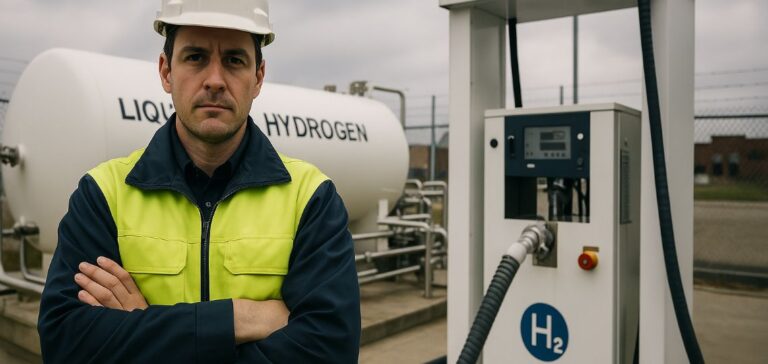US-based Hyroad Energy, a company specialising in hydrogen-powered transport solutions, formalised a strategic partnership at Hannover Messe with German industrial manufacturer Bosch Rexroth and technology firm GenH2. The collaboration aims to build the first-ever zero-loss liquid hydrogen refuelling station in the United States. The pilot facility will be located in Dallas, Texas, where Hyroad is developing its flagship hydrogen refuelling station to meet rising demand outside California.
The project brings together three complementary areas of expertise: Bosch Rexroth’s Liquid Hydrogen CryoPump cryogenic pump technology, GenH2’s controlled liquid hydrogen storage solution, and Hyroad Energy’s experience in refuelling infrastructure deployment. The companies aim to eliminate boil-off losses, a common issue in hydrogen storage and dispensing operations.
Integrated technologies and shared objectives
The partnership is focused on implementing an integrated system that ensures zero losses during the transfer of liquid hydrogen. This technical development is expected to enhance the economic viability of hydrogen refuelling for commercial-scale applications. Dmitry Serov, Founder and Chief Executive Officer of Hyroad Energy, stated that the project represents a significant step towards truly loss-free operations — a target long hindered by the thermodynamic constraints of cryogenic storage.
Dave Hull, Regional Vice President at Bosch Rexroth, said the initiative demonstrates the potential of a reliable and scalable hydrogen infrastructure and reflects the company’s commitment to alternative energy solutions. Greg Gosnell, Chief Executive Officer of GenH2, added that the solution would eliminate standard industry losses, establishing a new technological benchmark for the sector.
Expected rollout and national implications
The Dallas station is expected to be operational by 2026. This timeline underscores the clear intent of Hyroad Energy and its partners to expand a nationwide network of liquid hydrogen refuelling stations beyond early-adopter regions like California. The project signals an acceleration of hydrogen infrastructure investments across the United States, as industry players respond to the rise of zero-emission transport.
The initiative could also serve as a model for future high-efficiency stations and offer critical technical insights for future deployments in other metropolitan areas.






















